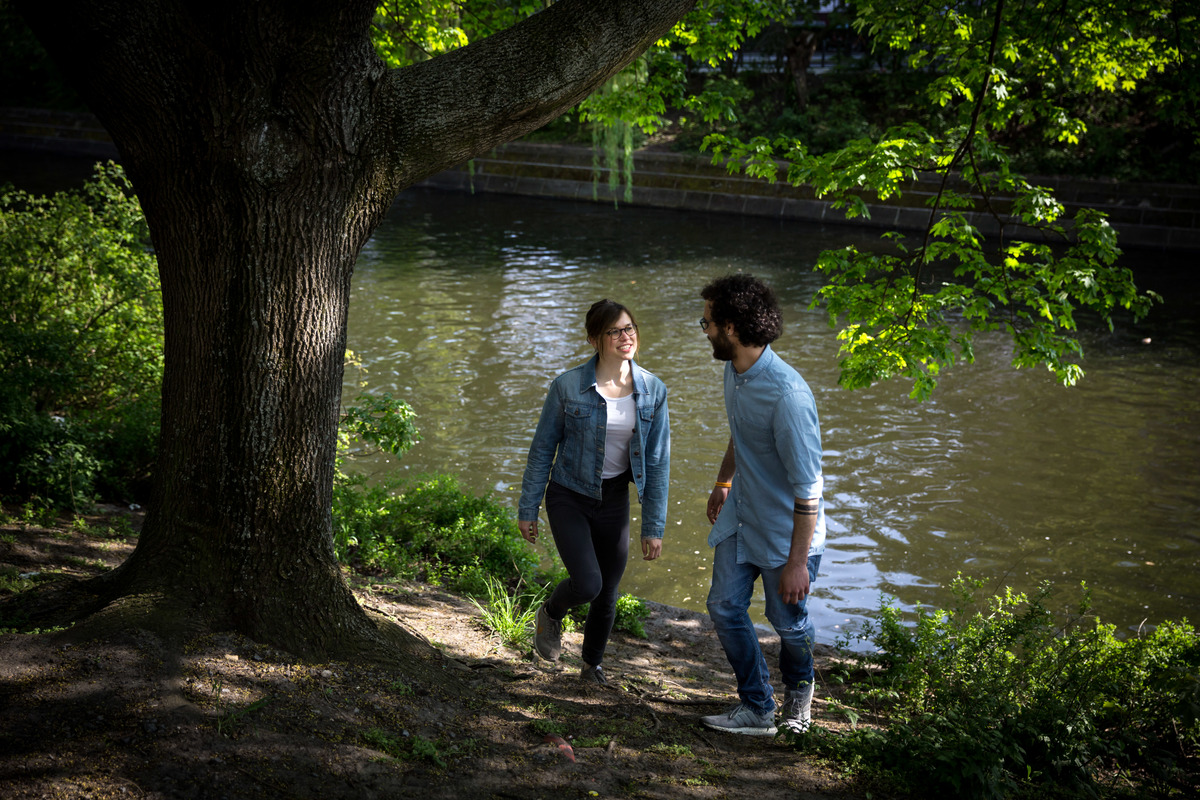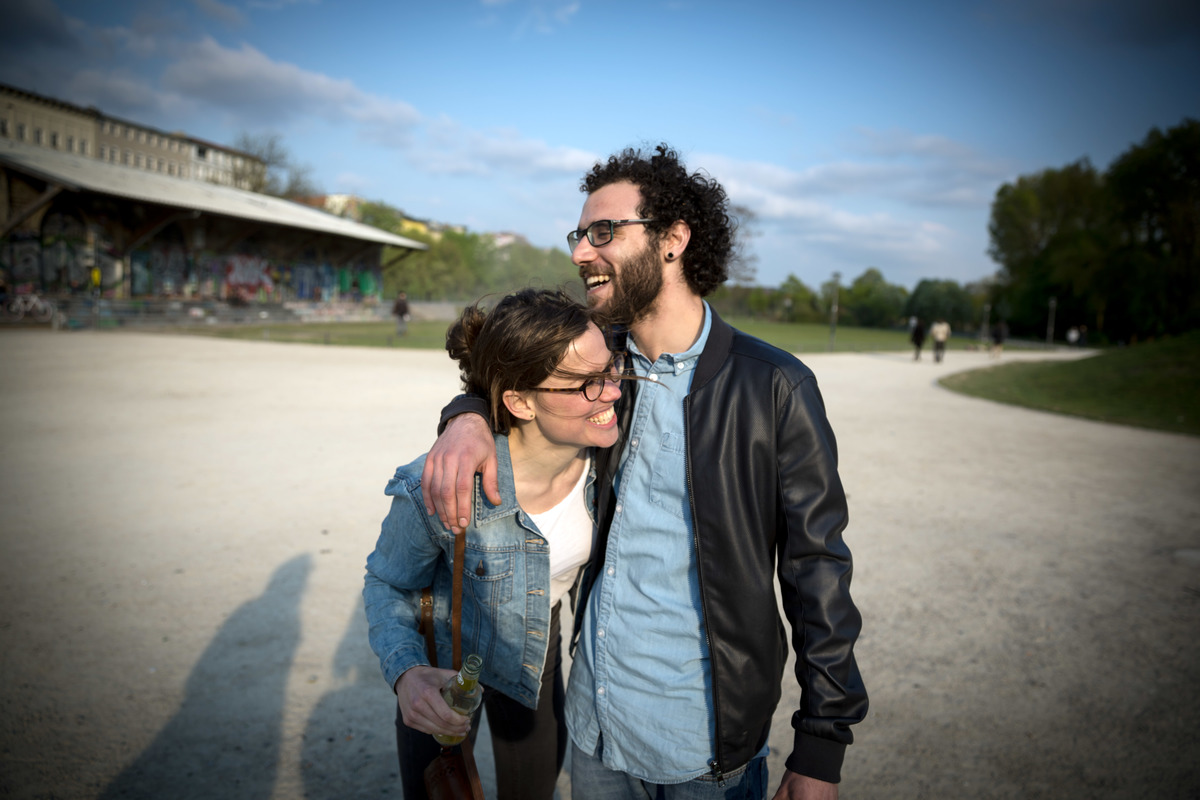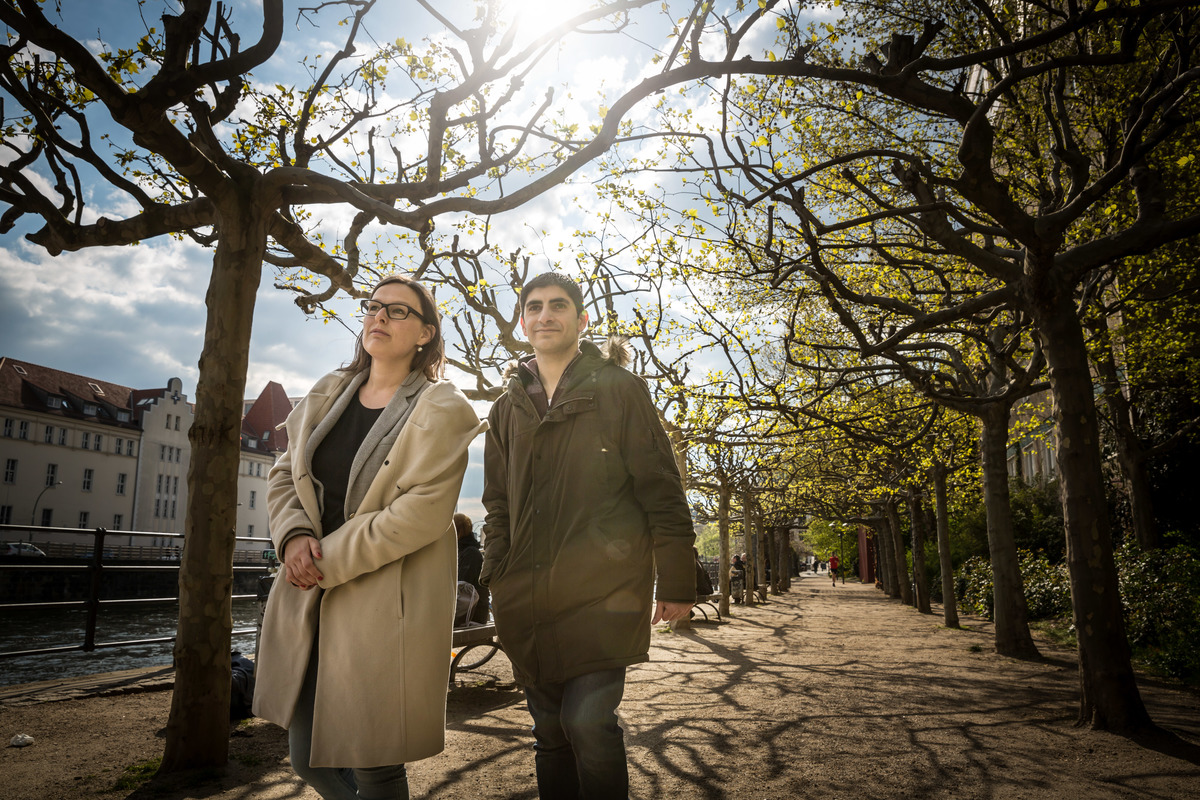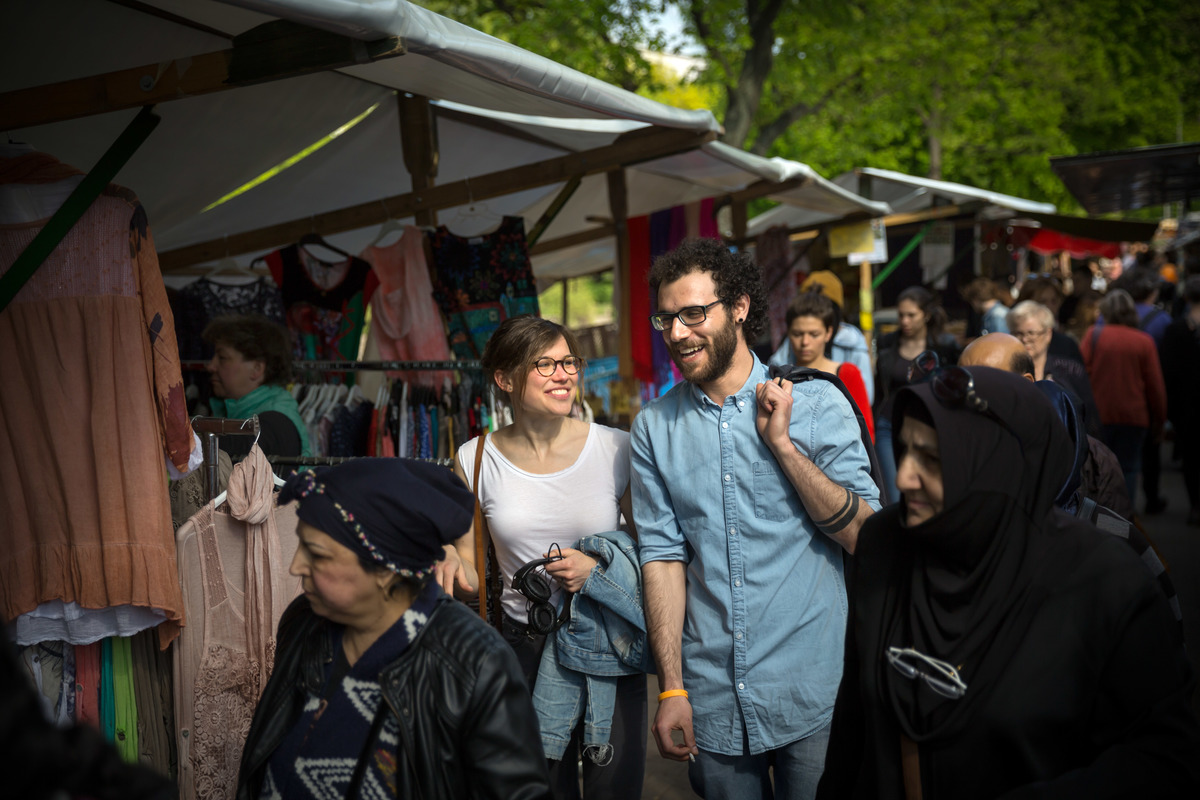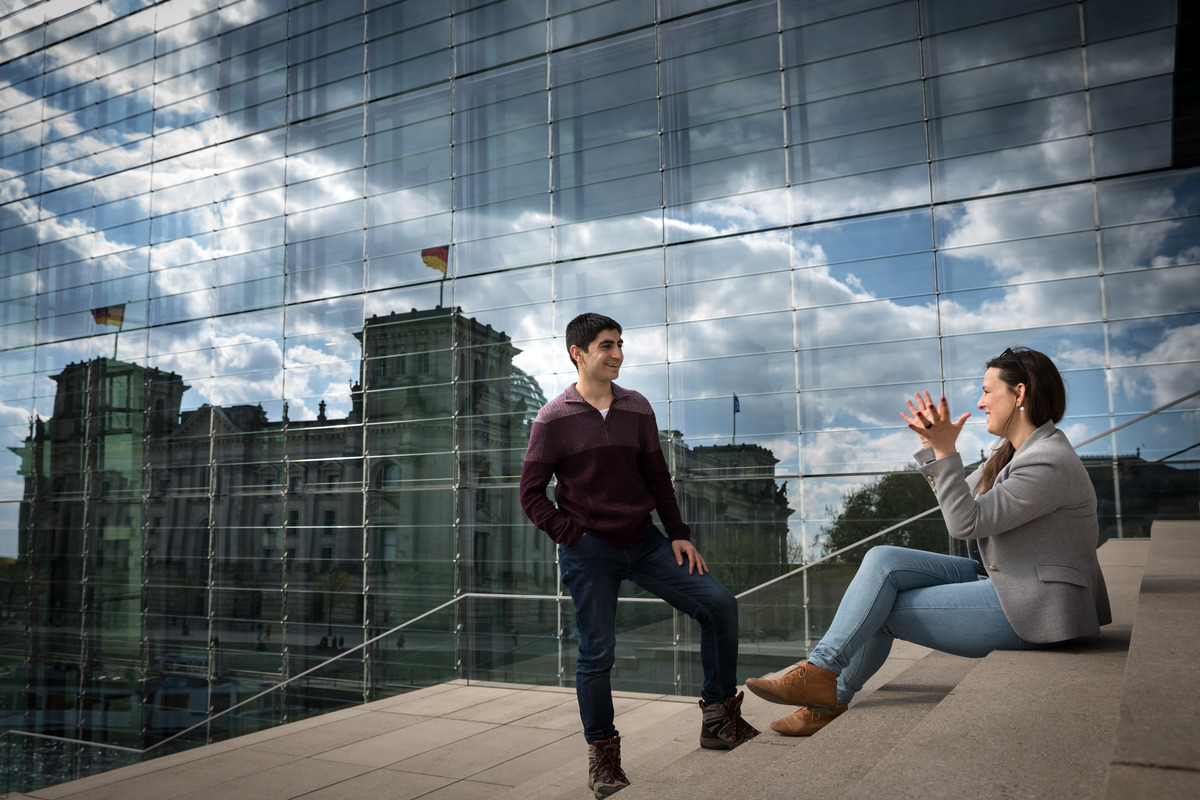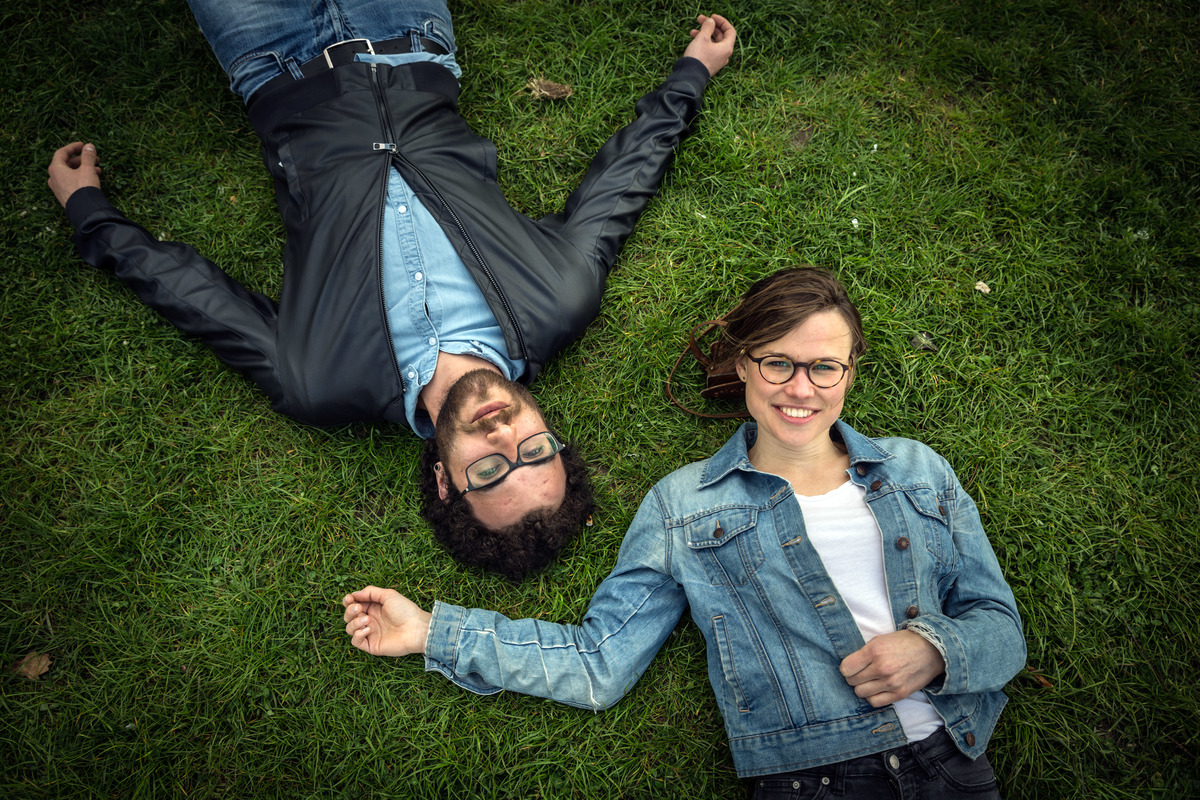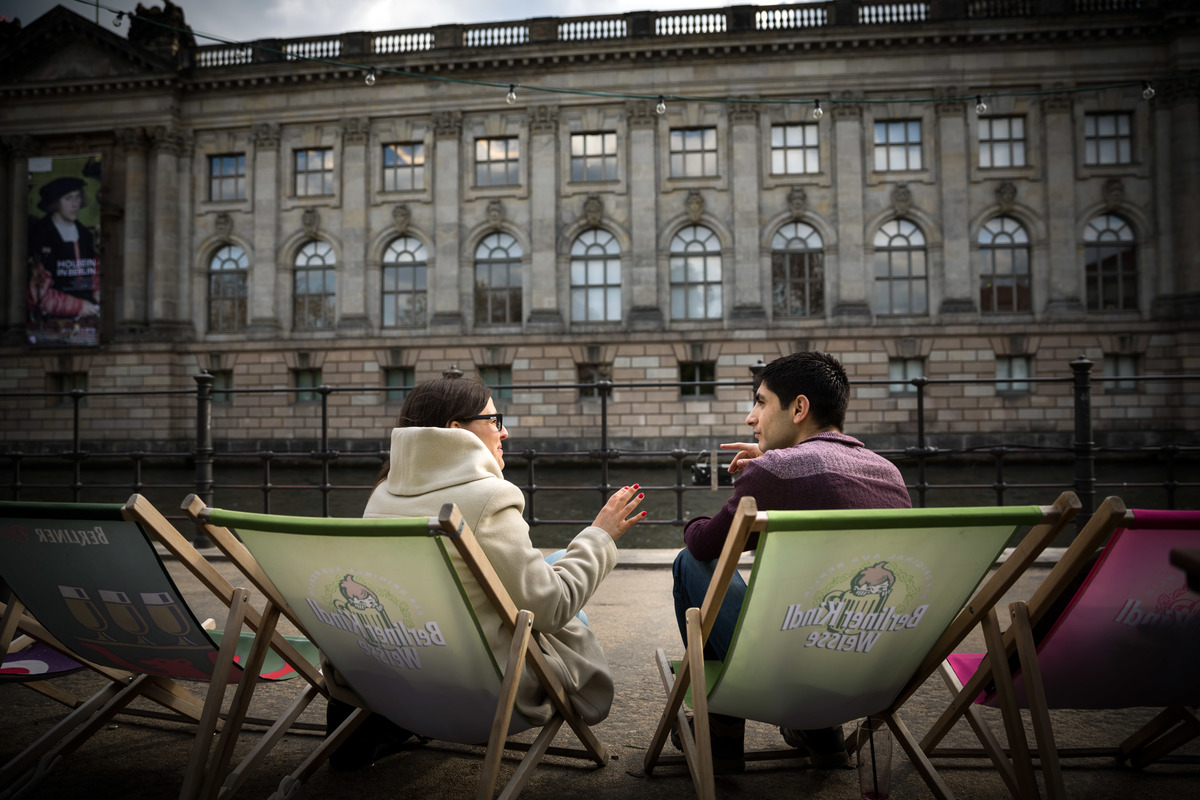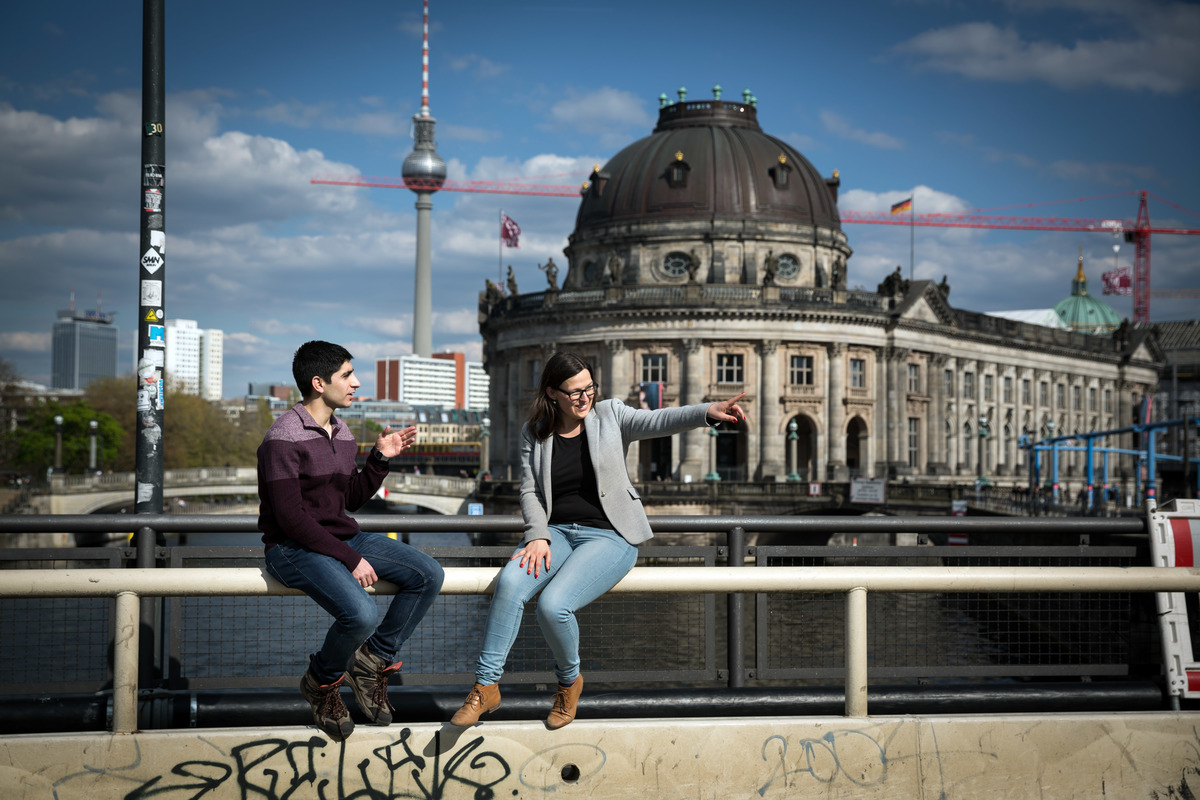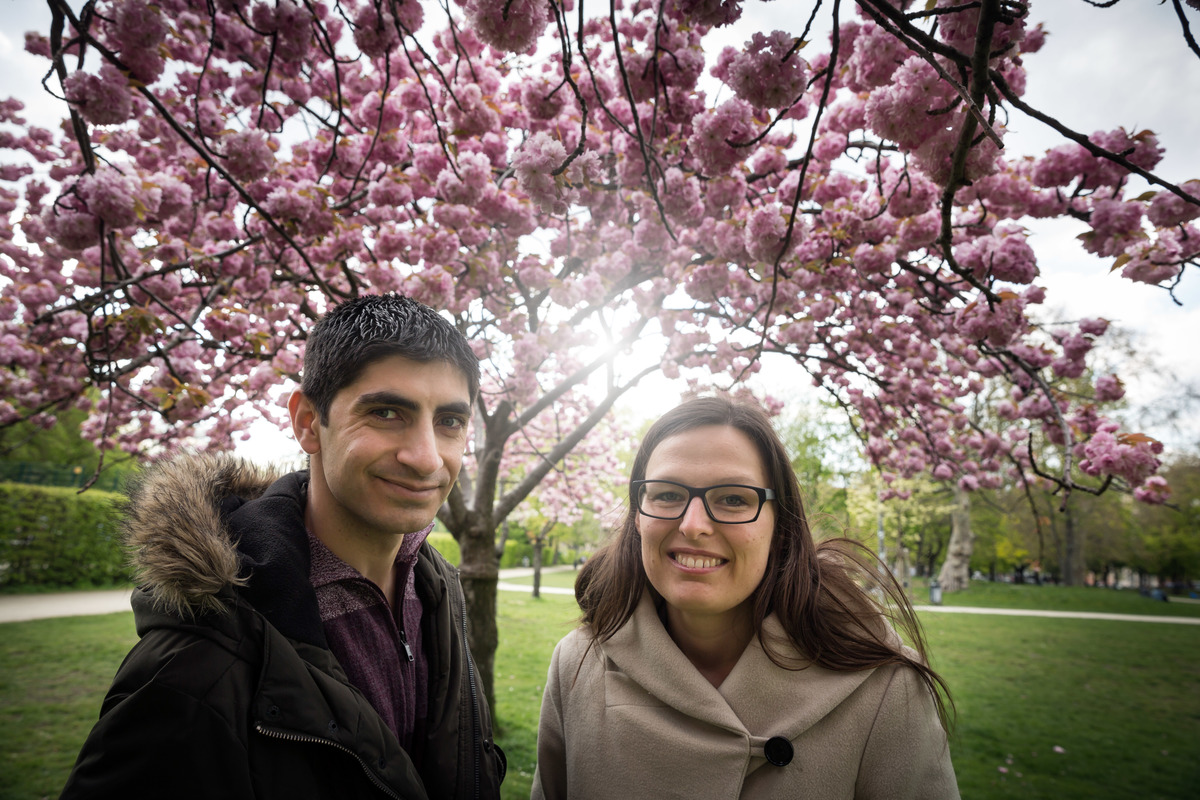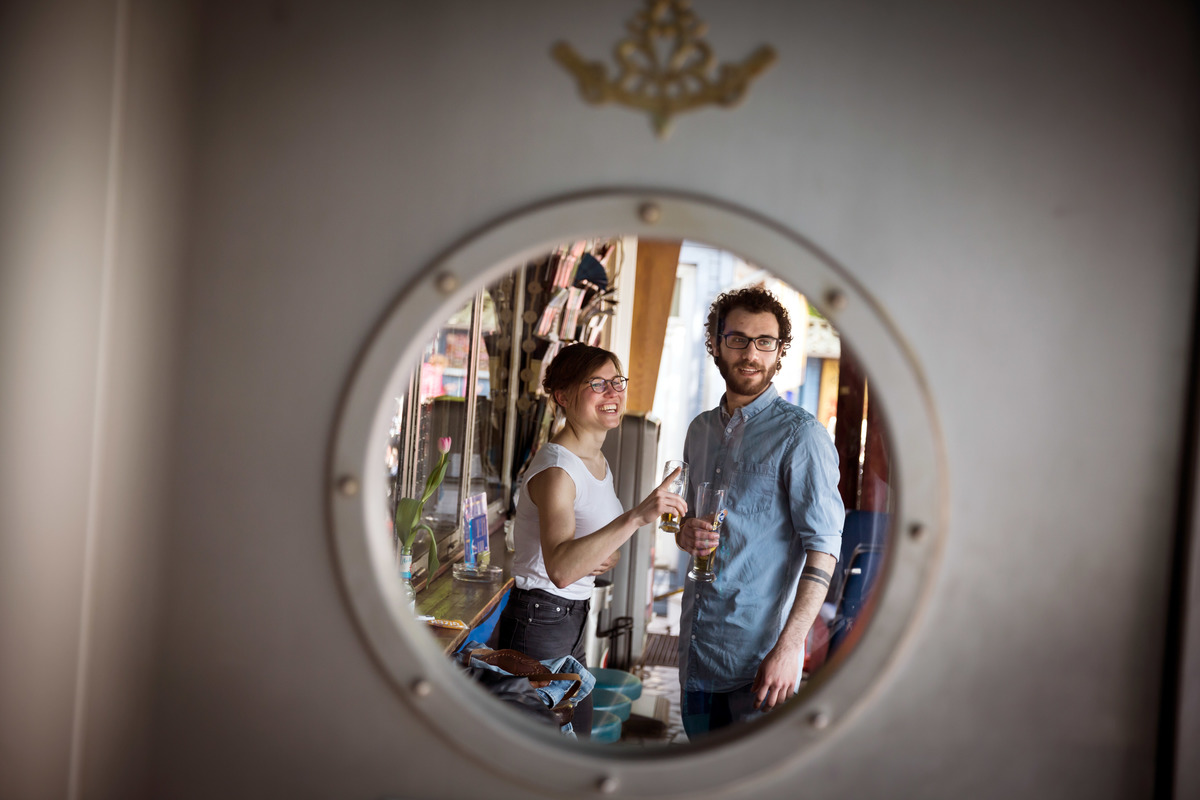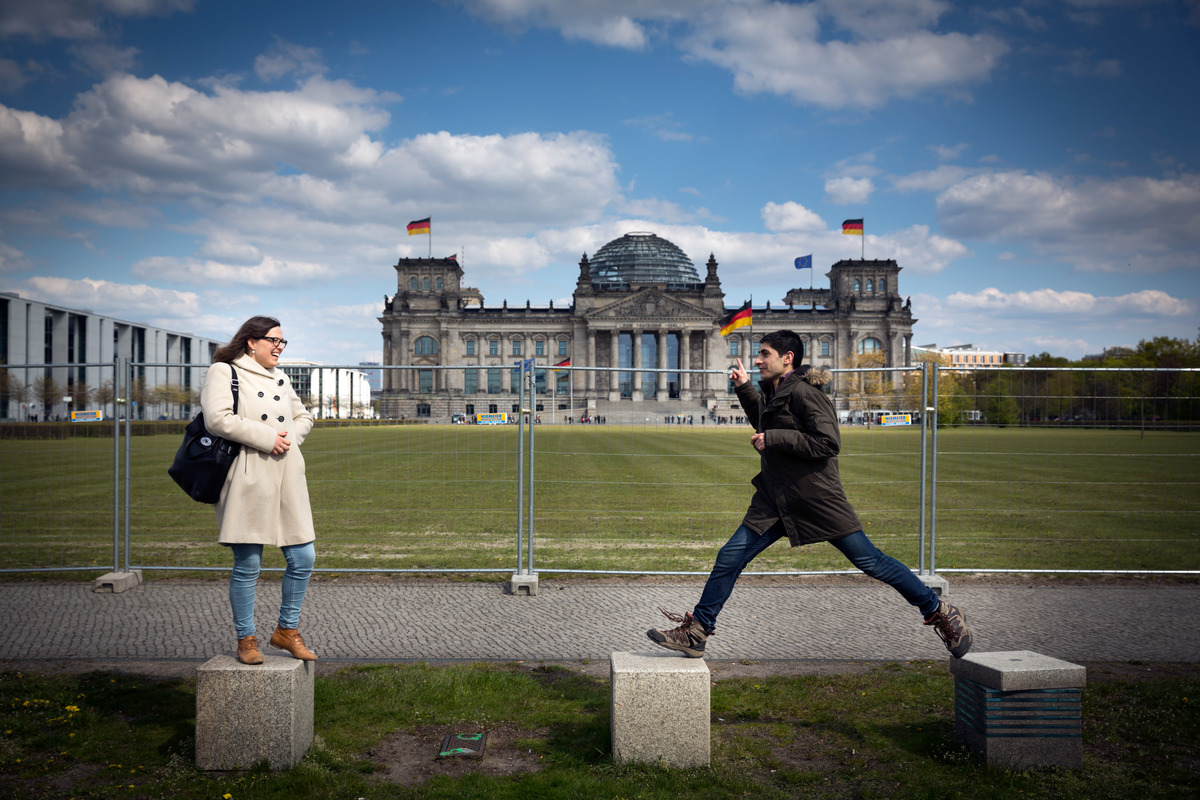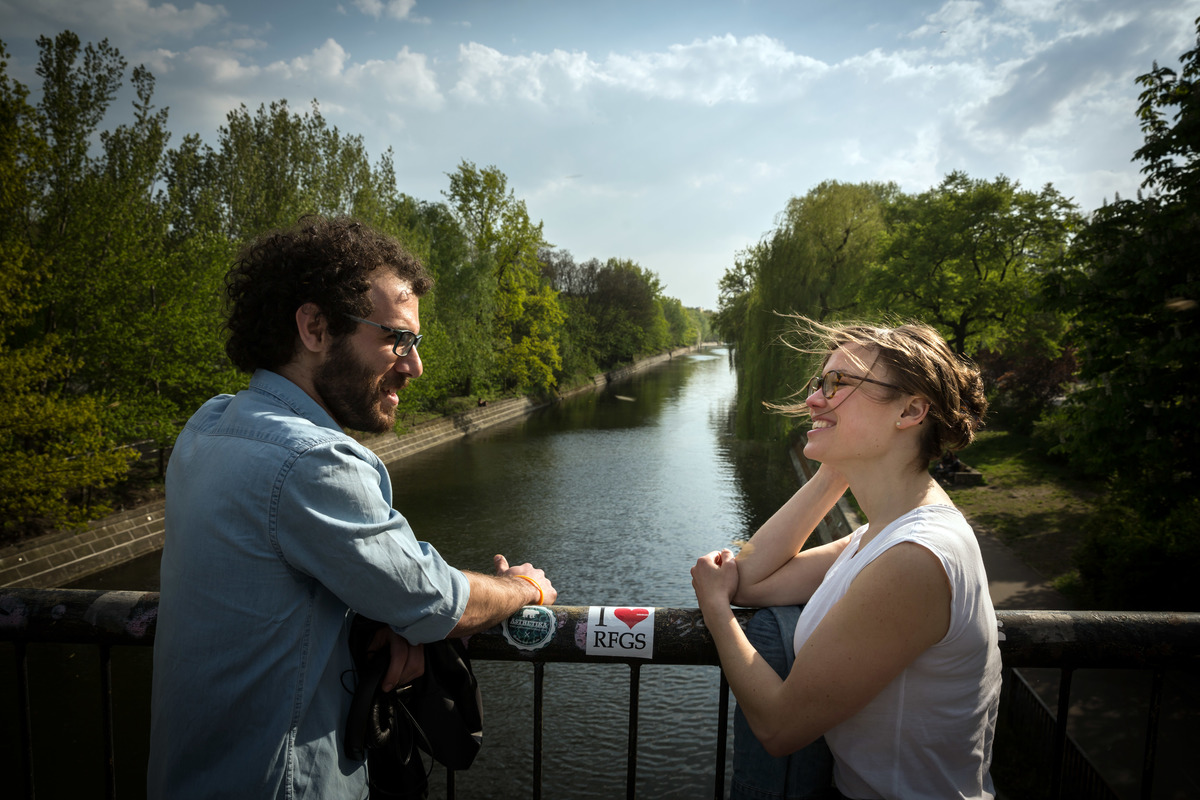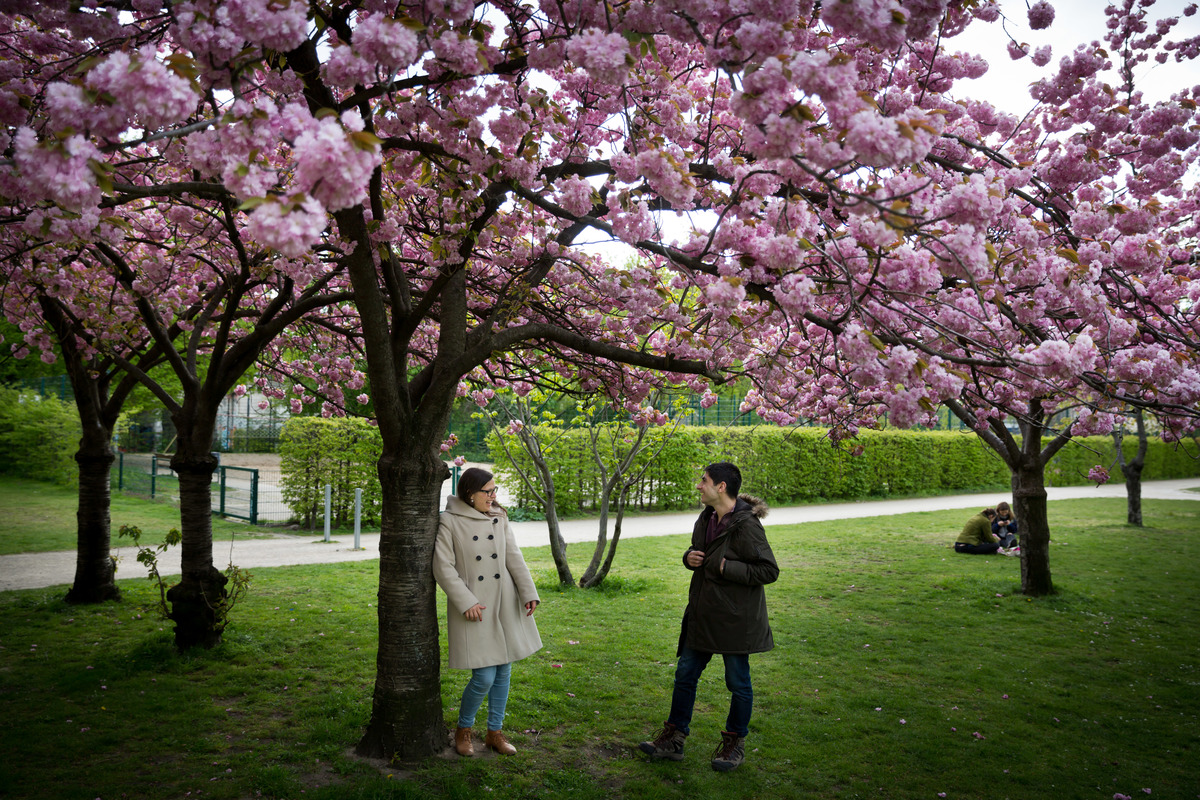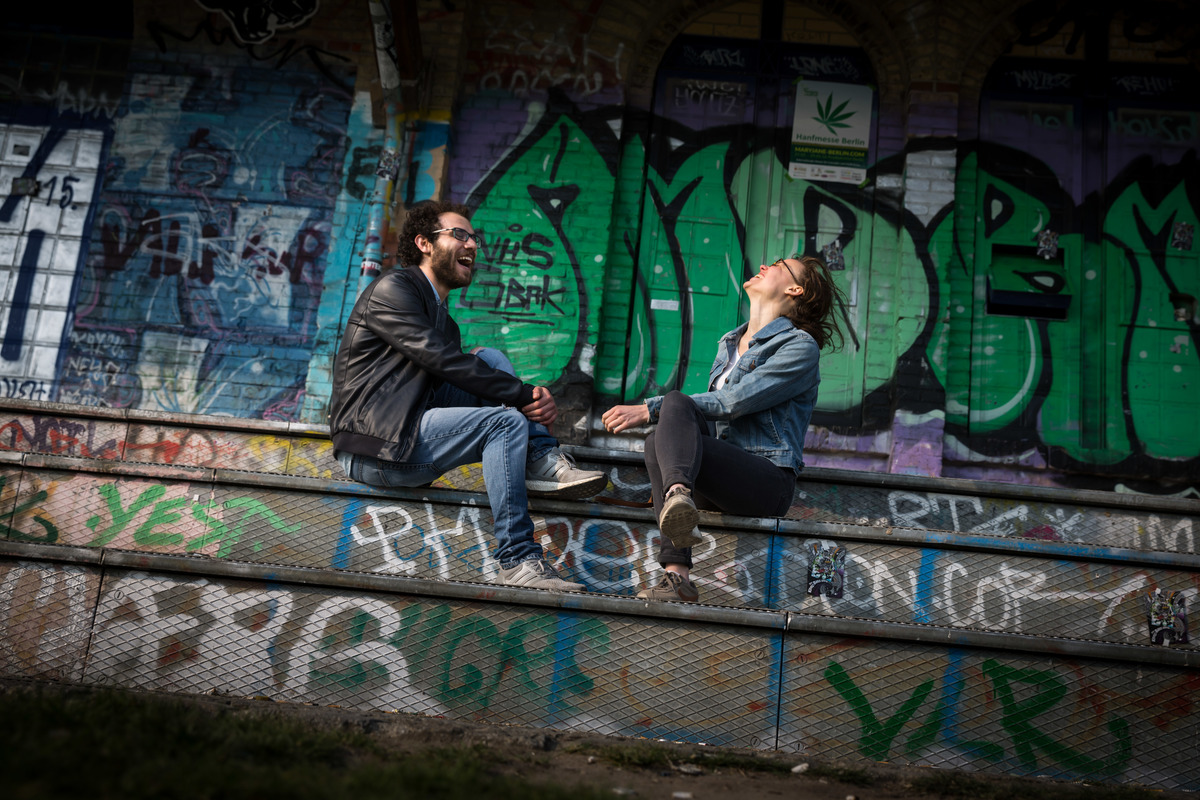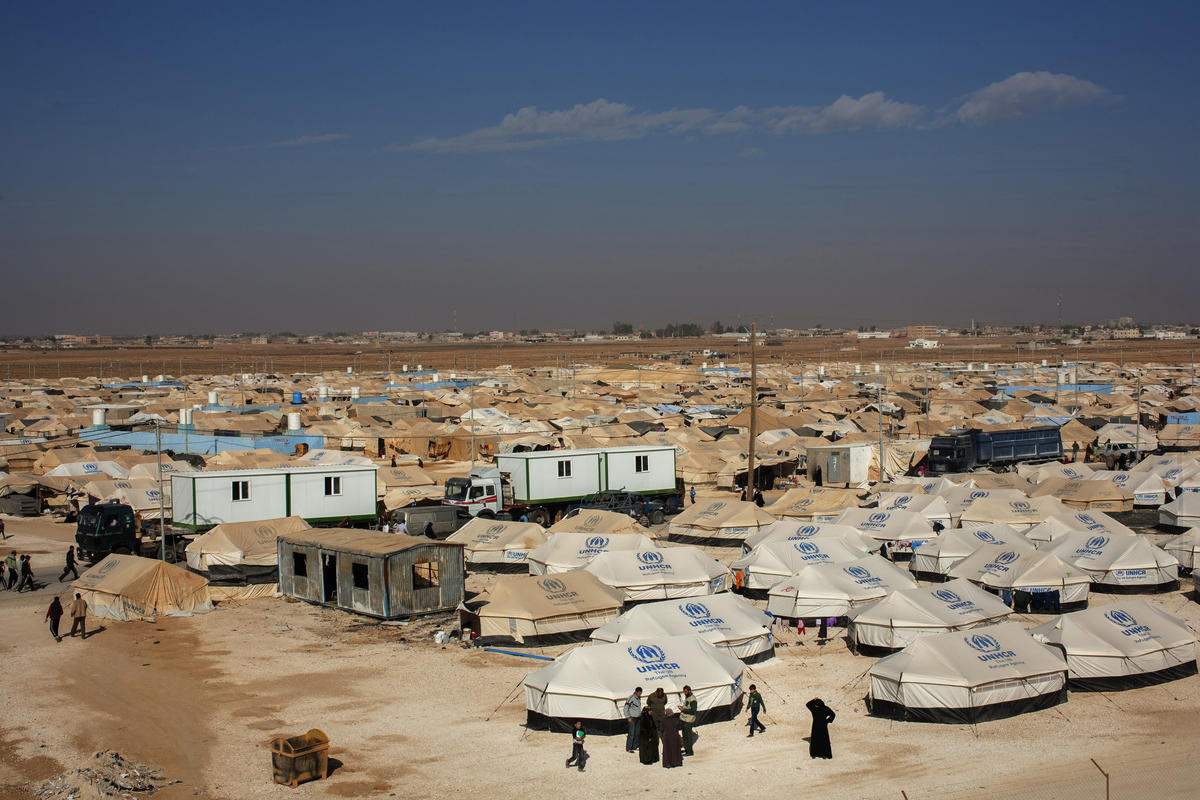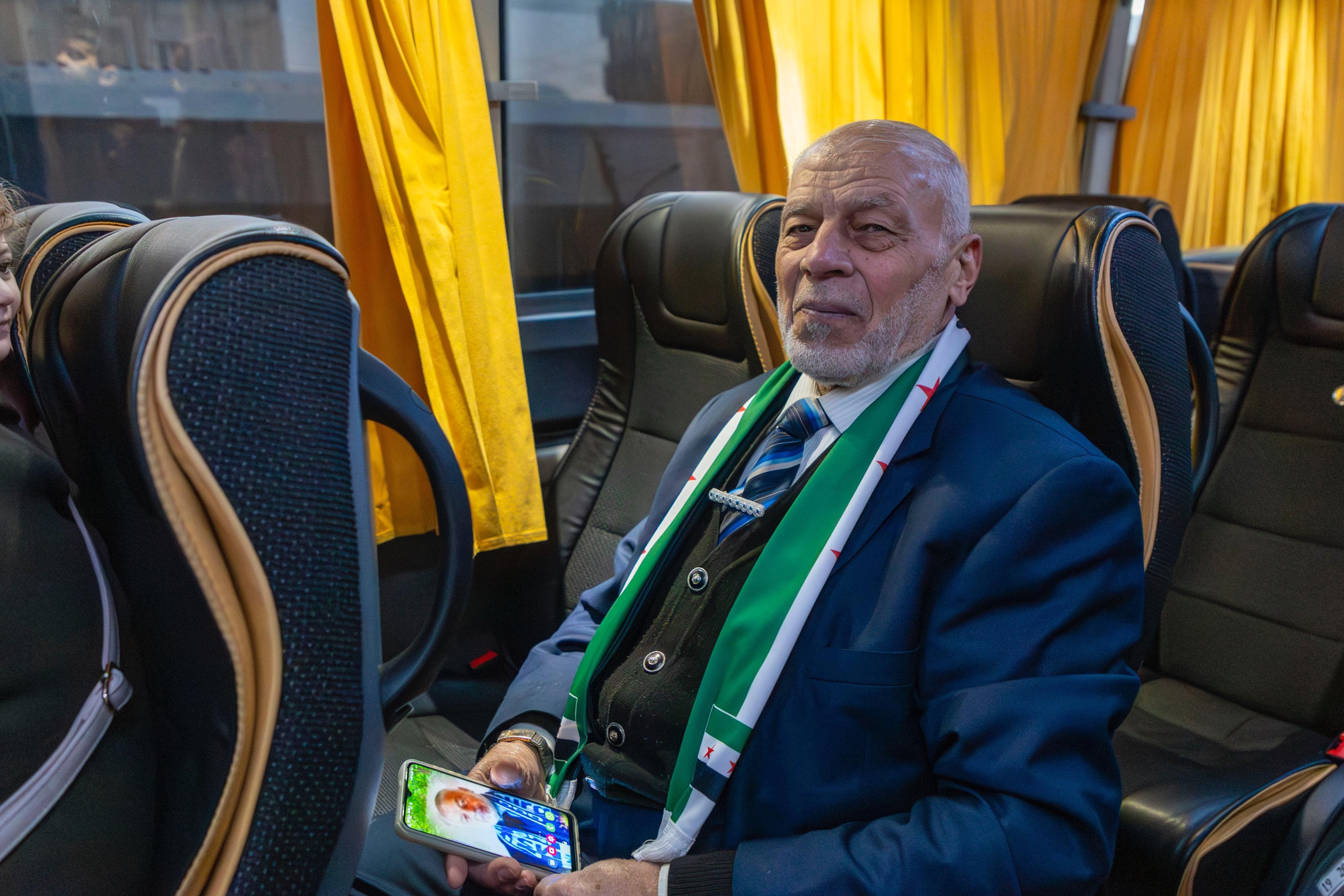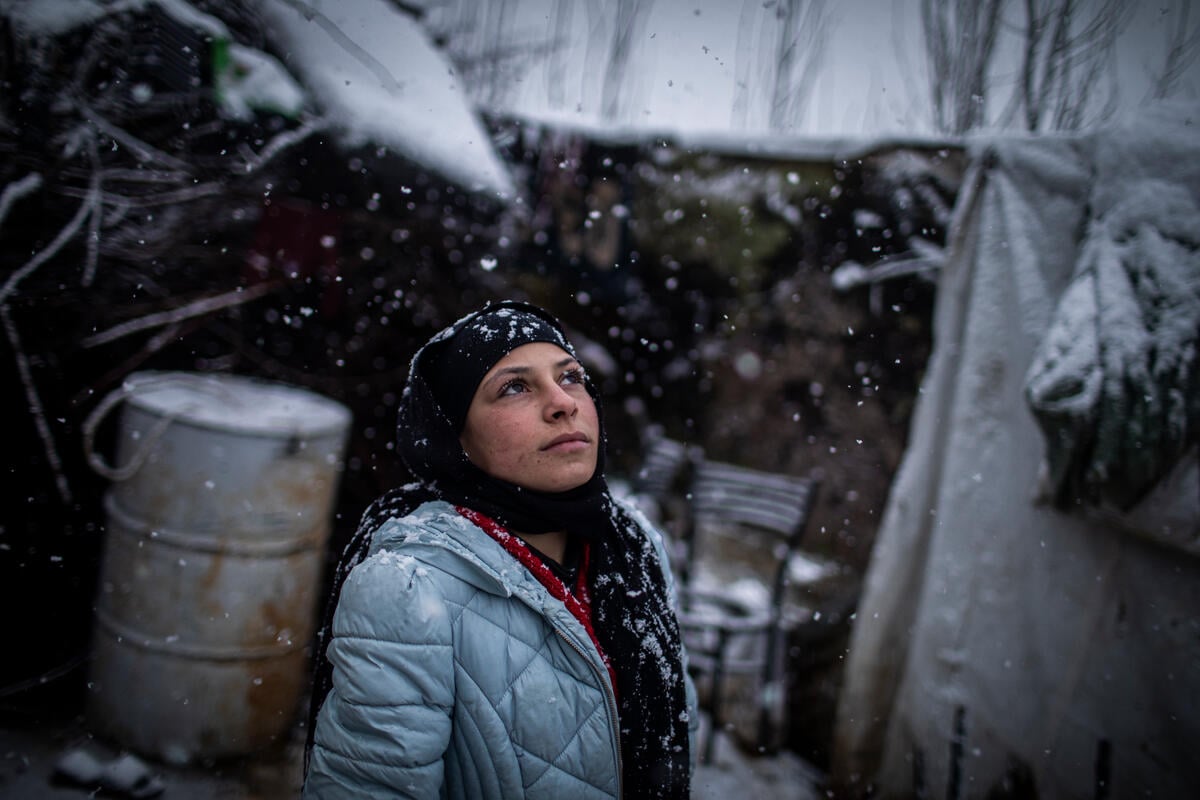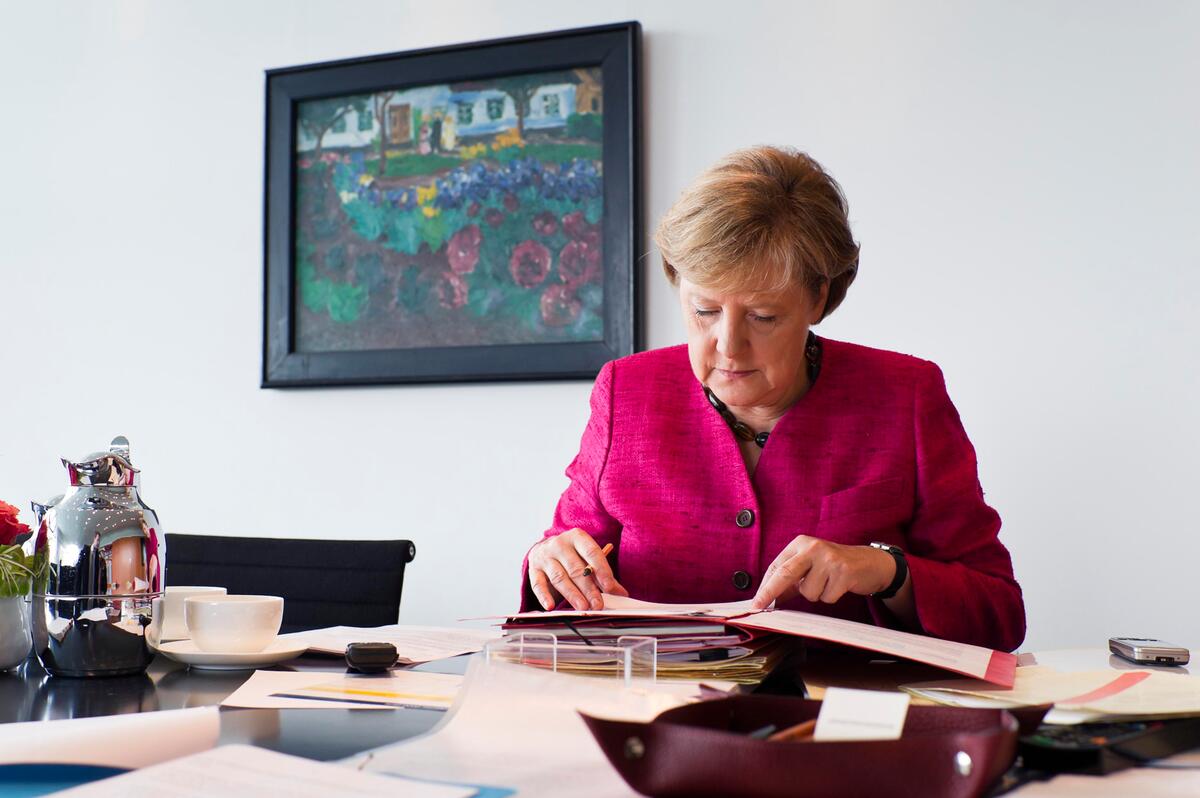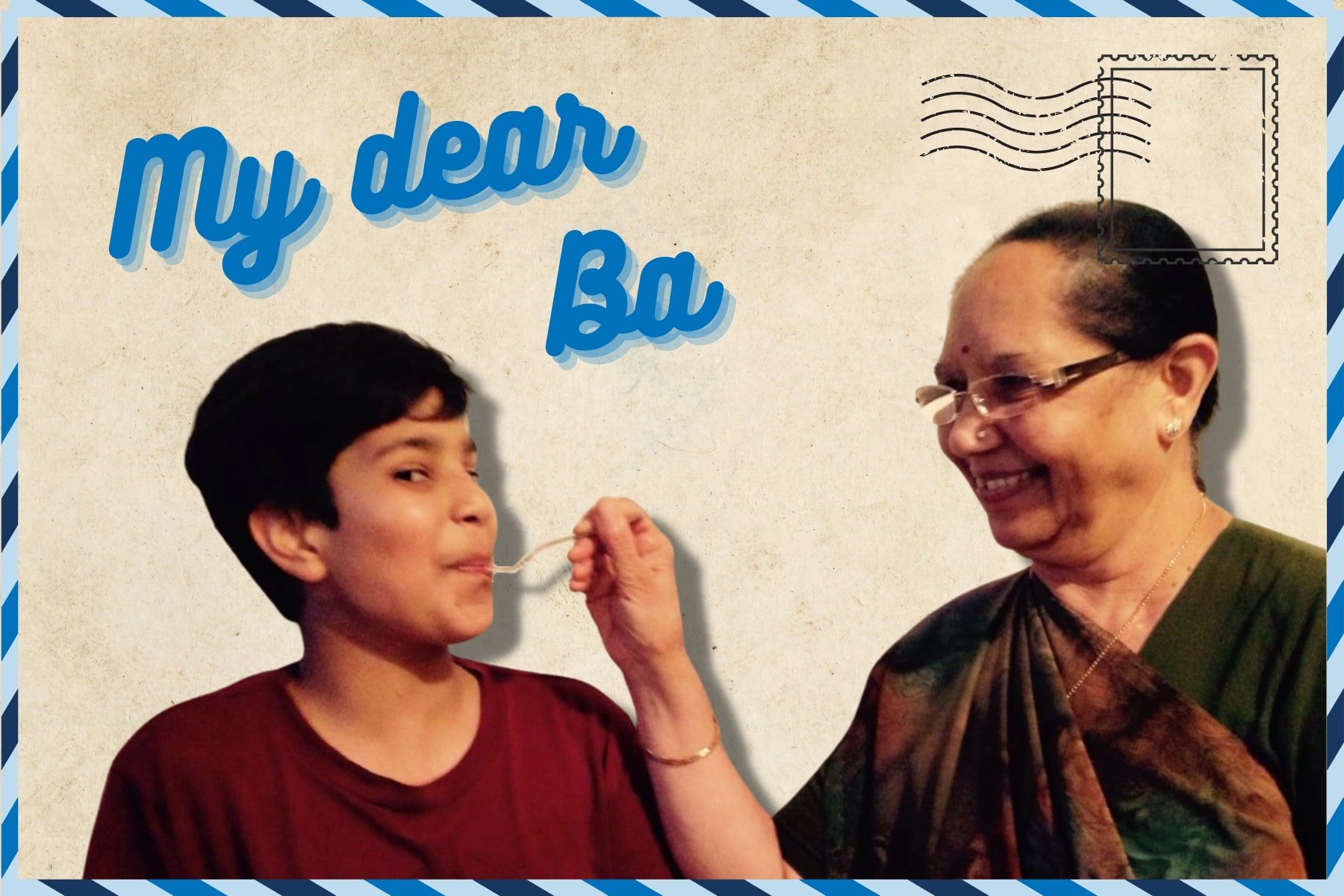You've Got a Friend in Me

You've Got a Friend in Me
Integration is a two-way street, as friends Fahed Khalili and Anne-Marie Schumann have discovered first-hand. In the year since they met, Fahed, a refugee from Syria, has even taught Anne-Marie one or two things she didn’t know about her own country, Germany.
When they first made contact through an integration initiative in Berlin last spring, Fahed was struggling to find his feet.
“I needed help with searching for a flat and dealing with the job centre,” he says. “I hoped someone local would be able to help me.”
Fahed, 27, fled Syria when fighting intensified near his home in the western city of Homs. He and his younger brother arrived in Berlin in January last year, exhausted and disoriented after their perilous journey across Libya to Italy.
Spotting a post on social media, Fahed registered with Start with a Friend, a German volunteer initiative matching asylum-seekers with local contacts. A week later, he was drinking coffee with Anne-Marie. They quickly became friends, meeting regularly and chatting almost every day online.
To Anne-Marie, signing up as a local partner was a way of offering help without feeling she was patronising new arrivals.
“I really liked the idea of building an equal friendship on a level playing field,” says Anne-Marie, a 34-year-old consultant from Leipzig. “It went completely against the sentiment of giving your old clothes to the poor, helpless new arrivals. It was more about just being young people here in Berlin, having that in common and making the best out of it.”
Eighteen months after it began, Start with a Friend recently celebrated matching its 400th pair. The simple premise of teaming up asylum-seekers and refugees one-to-one with local partners has struck a chord in Germany, where efforts are being stepped up to integrate more than one million newcomers who sought asylum last year. In January, the project secured government funding and now employs seven full-time staff in four cities.
“We didn’t want to go down the classic route of giving ad-hoc aid, where refugees tend to end up getting stuck in this position of being helped,” says Nina Winzen, who heads the project’s Berlin chapter. “We wanted it to be an exchange between equals from the very start. We wanted to do more than waving at them in a train station and instead start helping shape their new lives here.”
“We wanted it to be an exchange between equals from the very start.”
In practice, that can mean help with anything from language learning to coping with paperwork. “But more importantly it’s someone to go for a coffee with, or invite along to an event,” Winzen says. “It’s about integrating someone in your own way, getting your friendship group involved, just mixing them into your social life.”
For Fahed and Anne-Marie, that process worked both ways. “Fahed learned German so fast he hardly needed me after a while,” Anne-Marie says. “So we got to know each other’s family members and friends, we invited each other to all the parties. It was really more like he integrated me into his friendship group.”
Fahed, who read up on German history and culture online, even took Anne-Marie to visit the Reichstag, Germany’s parliament building, for the first time. “For me, the Reichstag is a symbol of Germany’s strength,” he says. “Even though it was partially destroyed in World War Two, they still rebuilt it. I hope that will happen with my country one day.”
With Anne-Marie’s help, Fahed’s German got better by the day. He found a flat, was granted refugee status and hopes to be able to resume his law studies later this year. “For me, it’s so important to have contact with Germans,” he says. “If refugees just stick together and don’t get to know the locals we’ll get parallel societies forming and that’s not good.”
It’s a warning Fahed repeats to readers of his blog, where he advises new arrivals: “I tell people not to isolate themselves.”
For Ramy Syriani, a Syrian-Palestinian who came to Berlin last July, Start with a Friend also provided the vital missing link to the strangers around him.
Weeks after he arrived, he registered on the site and met Berlin resident Antonia Klein, who soon became a close friend.
“At the beginning, I spoke no German and only a little English, so I needed someone to help me,” he says. “I wanted to learn German as soon as possible to get on with my studies. It’s also something in our genes as human beings, we need to talk, we need to have contact. If I was to go up and talk to just anyone in the street it might have been awkward, but this way it was much easier.”
“It’s also something in our genes as human beings, we need to talk, we need to have contact.”
Ramy, 25, is a law student from Damascus. His family are Palestinians who have lived in Syria for several generations, but do not have full Syrian citizenship.
His local contact Antonia was also anxious to meet her new neighbours. “I was interested in meeting the refugees, in finding out more about what was happening in the Middle East,” says Antonia, 28, a trainee lawyer.
“Unless you speak to someone who’s lived it, you never really understand. When I first met Ramy, I was a bit nervous. I didn’t know if there were things I shouldn’t ask him about. But in the end he asked all the questions, it was very natural.”
Soon, they were introducing each other to friends and family. Ramy moved in with German flatmates and started language lessons. Before long, he was chatting away to Antonia and her friends exclusively in German. Antonia says three of her friends were so inspired that they signed up for the project too.
To Ramy, who has suffered a racist insult at least once on Berlin’s streets, promoting this kind of mutual understanding is more urgent than ever. “After the attacks in Brussels and Paris, I saw people starting to treat me differently when I say I’m from Syria,” he says. “It has really hurt us all a lot.”
“So many people here don’t know anyone from the Middle East or Africa, that’s the problem,” adds Antonia. “I’m convinced everyone should get a local assigned to them when they cross the border, that would resolve a lot of problems. People often don’t think of the individual, they think of the group, but they get less afraid when they see they’re just normal people too.”


